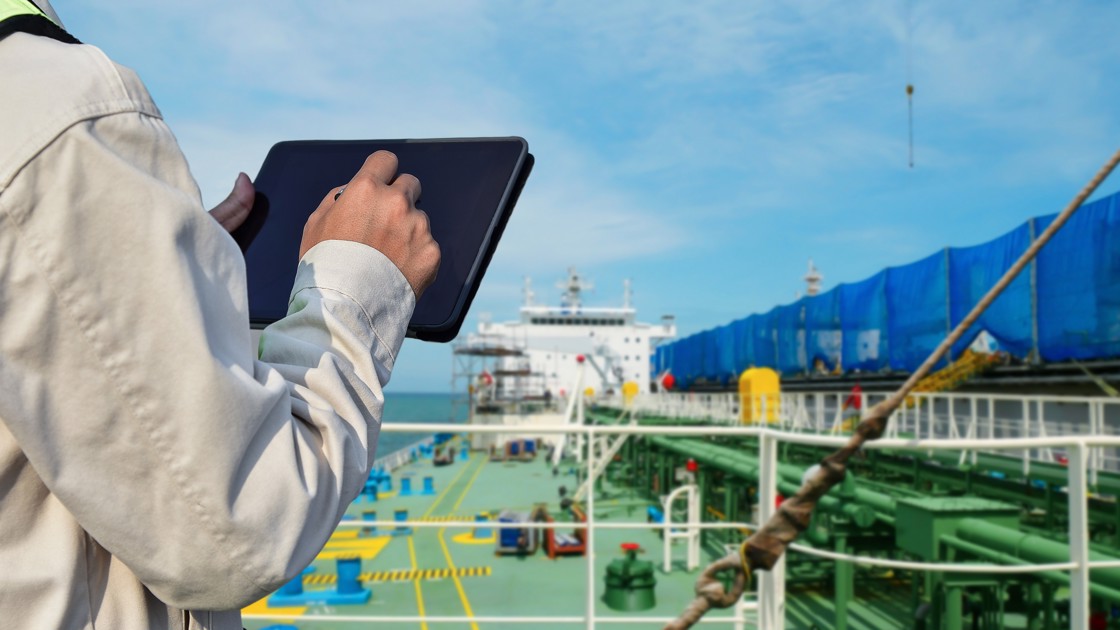concrete measures need to be put in place now to ensure that the industries and workers are ready to meet these challenges head on
Today, the European social partners for the maritime technology sector, SEA Europe and industriAll European Trade Union, release a Joint Statement calling for an ambitious sectoral strategy to ensure a fair and just transition for the sector.
Following a European Social Dialogue meeting with the European Commission focused on the Commission’s Staff Working Document ’For a resilient, innovative, sustainable and digital mobility ecosystem’ (2022) and the accompanying launch of the co-creation process towards a transition pathway, the European social partners have set out their common demands in a Joint Statement.
The European social partners welcome the increased focus on the sustainable future of the maritime technology sector in Europe and agree to actively engage in the co-creation process, stressing that strong social partners and quality social dialogue are at the heart of the transition.
The Joint Statement highlights the ongoing challenges facing the industry, such as the COVID-19 crisis and the long-standing, unlevel global playing field, as well as the new pressures created by Russia’s aggression against Ukraine and the subsequent sanctions.
As a direct response to these challenges, the social partners call upon the European Parliament, European Commission and EU Member States to adopt concrete policy actions. These include increased investment and support for the sector and its workforce to avoid Europe becoming entirely dependent on Asia’s maritime (technology) sector, whilst ensuring a resilient, globally competitive, innovative, sustainable and digital sector, in accordance with the goals of the Mobility Ecosystem Transition Pathway.
Concretely, the European social partners call for four essential actions:
- A sectoral approach to safeguard the sector, boost its global competitiveness and save jobs
- Action to stimulate domestic demand and keep jobs in Europe
- Increased investment and support to safeguard jobs and protect skills
- A Just Transition for all workers and regions
In conclusion, the social partners reiterate their engagement to meet the future challenges involved in the twin green and digital transitions. However, to meet these challenges and to ensure that the transitions are a success, real engagement from policymakers with tangible, sector-specific EU industrial policy actions and support for the maritime technology sector – a strategic sector Europe and for Europe’s strategic maritime autonomy – will be key. The establishment of a sectoral expert group, combined with a sector-specific EU industrial strategy, will be the first step to safeguard the future of Europe’s maritime technology sector.
Judith Kirton‐Darling, Deputy General Secretary for industriAll Europe, said:
“The green and digital transition of the maritime technology sector is a great opportunity for Europe to lead in producing world-class green technology and zero-carbon vessels. However, the sector is facing tough global competition and concrete measures need to be put in place now to ensure that the industries and workers are ready to meet these challenges head on.
Christophe Tytgat, Secretary General of SEA Europe, said:
“Europe’s maritime technology industry develops the most advanced vessels and technologies in the market. However, the pressure from unfair competition, and the impact of COVID-19 in some of Europe’s most prominent niche markets, are putting the sector at serious risk at a time of changing geo-political tensions that may endanger Europe’s maritime strategic autonomy if no urgent actions are taken.
“With this Joint Statement, industry and workers want to send a strong message to policy makers, reminding them that maritime technology is a strategic sector at the core of Europe’s maritime autonomy and resilience.
“If we don’t ensure today an adequate framework to keep a strong and competitive maritime technology sector in Europe, the continent with the largest coastal area and domestic market in the globe will become entirely dependent on third countries to develop our ships, offshore structures and maritime technologies, and we will lose an industry providing one million jobs with a huge potential to increase its market share and job creation in the coming years, thanks to the green and digital transition.”
